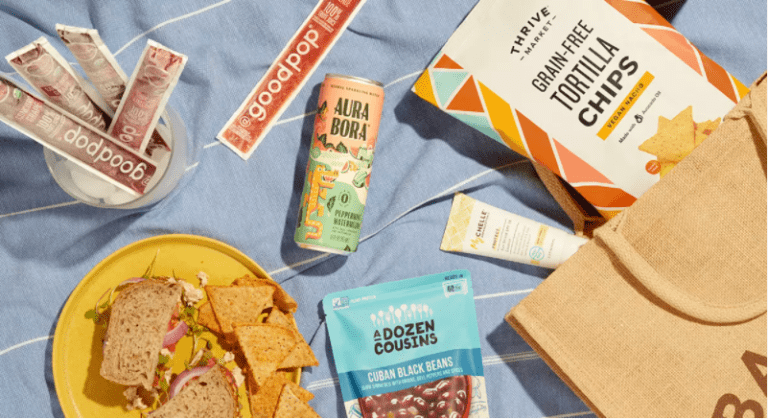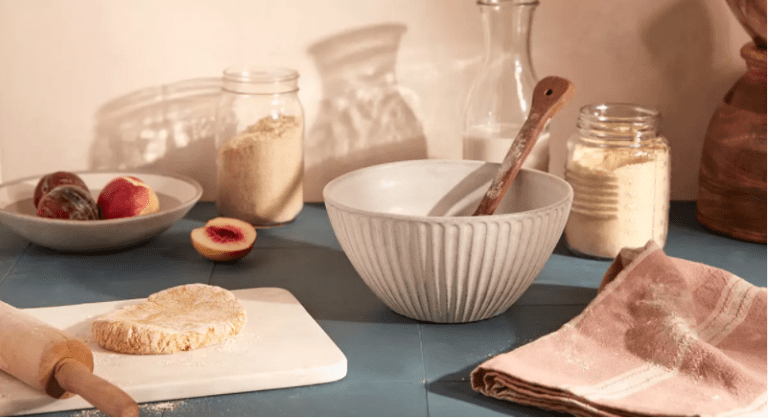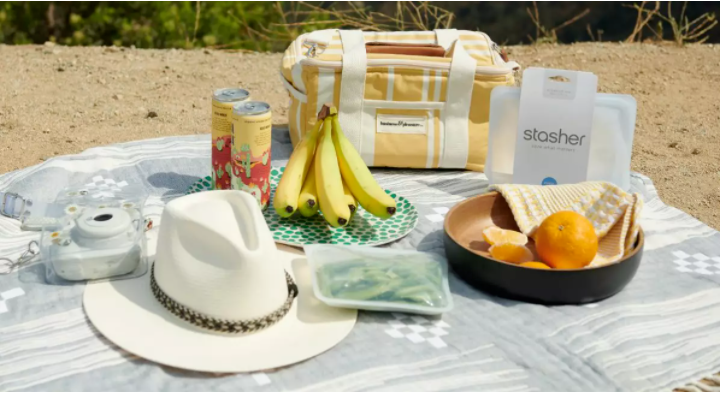Nontoxic Certifications Explained: What Do They Really Mean

One of the most important things to consider when buying a product is the toxicity and materials. Did you know many products are not regulated and can contain toxic chemicals?
We want to ensure our families are safe from these dangerous ingredients and materials, but it can be difficult as there isn’t one certification covering all aspects of non-toxic products.
Certification is a process in which materials are tested against standards to confirm that they meet certain requirements. There are many different certifications, so it’s important to know the differences between them and what they mean for your family. For example, some certifications focus on eco-friendly practices while others focus on safety.
Even synthetic materials, that have been known to cause health issues, can be considered “safer” based on certifications that look deeper into things. The specific certification you’re looking for will depend on your needs and wants as a consumer.
A good thing to note is that many products boast more than one certification and it is helpful to know where those certifications may overlap and where additional areas have been certified.
We’ll explore some of the most common certifications and what they mean for your health and safety when purchasing consumer products.
Cotton & Textile Certifications
When it comes to textiles, understanding the certifications behind your cotton and fabric products is crucial.
Did you know that conventional cotton involves the use of substantial fertilizers and pesticides and has been labeled the world’s ‘dirtiest’ crop?
These certifications ensure that the materials are sourced and processed ethically and sustainably, often emphasizing organic farming, fair labor practices, and reduced environmental impact.
They guide you in choosing textiles that are safe for your family and the planet. In this section, you will find the organic certifications for products.
Many mattress certifications that you may find include one or more, of the below.

Global Organic Textile Standard
GOTS (Global Organic Textile Standard) is a certification that has been issued to organic products since 1991. It ensures that the manufacturing process is monitored according to strict environmental criteria as well as social and economic standards.
The GOTS certification ensures that any fabric or fiber product bearing its label has been grown and processed organically concerning both people and the planet starting from growing through manufacturing until disposal/recycling.
GOTS provides two levels to its certification: “made with organic” and “organic”. “Made with organic” textiles are composed of at least 70% organic materials while “organic” grade textiles are crafted from 95% or more organic fiber.
Any of the certified items cannot contain hazardous chemicals or dyes. GOTS is unique in that it also evaluates the entire life of the product including the processing and manufacturing steps an item goes through.
If you would like to check if a product is GOTS-certified you can perform a search in the GOTS public database. It’s recommended to perform these searches for any company claiming to be certified. It has been found that some companies use the supplier’s status for marketing when their finished products do not hold the certification.

Oeko Tex Standard 100
Oeko-Tex Standard 100 is a certification program that establishes and tests limits for harmful substances and harmful chemicals in textiles, including raw materials.
It ensures that all materials used to make the product are free of over 300 specified harmful chemicals, such as lead or formaldehyde.
However, it is important to note that Oeko Tex Standard 100-certified products may still contain flame retardants.
As a best practice, it is good to reach out to the company if you have concerns about a specific product.
Additionally, if you are interested in checking if a company or item still holds this certification you can search them on the https://www.oeko-tex.com/en/label-check portion of their website.
The Oeko Tex Standard 100 certification covers both organic and non-organic textiles.

MADE SAFE
MADE SAFE is a newer certification that screens for ingredients and materials that have no known: behavioral toxins, carcinogens, developmental toxins, endocrine disruptors, flame retardants, GMOs, heavy metals, neurotoxins, high-risk pesticides, reproductive toxins, toxic solvents, or harmful VOCs.
They also do not permit the use of nanoparticles or synthetic biology.
MADE SAFE lists over 6500 banned substances that items are screened against.
Achieving the MADE SAFE seal requires full transparency from companies while they undergo their certification process.
To get a more in-depth look at the MADE SAFE process check out their certification process on their website. https://www.madesafe.org/process/

Organic Content Standard
The Organic Content Standard (OCS), led by Textile Exchange, encourages farmers to grow their crops organically and assists companies in proving their organic claims.
It provides a method for businesses to verify the organic nature of the products they purchase.
Additionally, it helps companies communicate their commitment to organic products within the industry.
Furthermore, it opens up global market opportunities for farmers who cultivate organic fibers, facilitating their access to a wider audience.
They provide an Organic Content Verification in which only material from specific certified organic farms is accepted.
This third-party certification takes into account the entire chain of custody to ensure that the identity of the organic content is maintained from the farm to the finished product.
One thing to keep in mind is that this certification does not include processing requirements.
As of 2019 6,294 companies have been certified to the high standards of the OCS.
Latex Certifications
Latex certifications are essential in verifying that latex products, often used in mattresses and pillows, are free from harmful chemicals and synthetic materials.
These certifications often focus on natural sourcing, sustainable harvesting, and ensuring that the final product meets stringent health and safety standards.

Global Organic Latex Standard
GOLS (Global Organic Latex Standard) was established by an independent group of experts, certified natural rubber latex suppliers, and leading manufacturers to maintain a uniform standard for the production of all GOLS-certified organic mattress materials made from natural rubber.
A product with the GOLS certification is made with 95% or more organic latex. If the item also includes additional fabric, such as cotton or wool, those fibers must be GOTS or eco-INSTITUT certified.
Foam Certifications
With foam being a common material in furniture and bedding, foam certifications play a critical role in ensuring that these products are free from toxic chemicals.
These certifications assess the safety of foam products, guaranteeing they do not emit harmful VOCs (Volatile Organic Compounds) and are safe for indoor use.

CertiPUR-US
CertiPUR-US is an independent testing lab for materials used in the home and children’s products, including memory foam mattresses.
CertiPUR-US® approved foams are manufactured without ozone depleters, PBDEs, TDCPP, or TCEP (”Tris”) flame retardants, mercury, lead, and other heavy metals, phthalates, and/or formaldehyde.
Polyurethane foam cannot be certified organic.
It should be noted that there are some hesitations with the Certi-Pur-US certification as it was created by foam companies and chemical lobbyists here in the United States to counteract the more cost-effective foams that were being imported.
If you are searching for a non-toxic mattress you will want to ensure it has other certifications, as well.
Sustainability Certifications
Sustainability certifications are vital in demonstrating a product’s eco-friendly credentials.
They cover a range of factors, including energy efficiency, renewable resources, and minimal environmental impact, helping consumers choose products that align with their commitment to environmental stewardship.

Climate-Neutral Certified
Climate Neutral works to reduce worldwide carbon emissions by encouraging businesses to measure, offset, and lower the carbon they produce. They developed a simple set of tools and a certification that makes carbon footprinting more accessible, specifies clear standards for carbon offsetting, and encourages companies to work on reducing emissions directly.
The companies acquiring the designation are required to have a long-term strategy to reduce emissions and offset their existing emissions.
Climate Neutral requires that a company develops a plan for cutting emissions and upholding more stringent emission limits and supports continuous improvement measures.

Forest Stewardship Council/ Rainforest Alliance
FSC Certified (Forest Stewardship Council® / Rainforest Alliance) ensures that the wood used is from responsibly managed forests.
The Forest Stewardship Council certification also ensures that no endangered or protected species are affected by the manufacturing process.
Additionally, the FSC certification prohibits the use of highly toxic and hazardous chemicals throughout the supply chain.

Bluesign
Bluesign is a new certification program that helps families and businesses reduce their environmental impact.
The Bluesign system provides both an eco-friendly seal of approval for products and a way to measure your contribution to environmental sustainability.
They test for things such as chemical consumption, carbon emission, water consumption, energy consumption, and worker health and safety.
Bluesign labeled textiles and products have been tested against the strict standards for chemical inputs throughout the supply chain to ensure that the finished product is less impactful on the environment and people.
This certification also makes it easy for consumers to choose environmentally friendly companies who share their values by including them in this list of certified partners: https://bluesignsystems.com/partners/.
Green America
Green America certification is an eco-friendly standard that sets the bar for companies seeking to be sustainable.
It’s a way for consumers to know they are making green choices when shopping, and it provides businesses with benchmarks for sustainability management.
Green America helps companies measure their environmental performance against best practices to help them improve or maintain their leadership position in this competitive market.
To become certified by Green America, a company must go through rigorous assessments of its efforts on climate protection, human rights, fair living wages, and community involvement.
Areas that they believe in are clean energy, fair labor, responsible finance, justice for all, and good food.
Air Quality Certifications
Air quality certifications are crucial for products that impact the air we breathe indoors.
These certifications ensure that products like paints, building materials, and home furnishings do not release harmful pollutants, thus maintaining healthy indoor air quality for you and your family.

Greenguard Gold
Greenguard Gold is a third-party certification program, (certified by UL) that creates safety standards for products related to indoor air quality including mattresses, furniture, and upholstery.
The certification is awarded to products that contain low chemical emissions which are less than 0.05 parts per million for 350 volatile organic compounds (VOCs), and interior air contaminants like dust mites.
As a consumer, it is easy to think that a certified product is safe when in reality this specific certification simply means that VOCs were not detected above a certain level.
The Greenguard Gold certification does not look into flame retardants, PFAS, microbes, or phthalates.

eco INSTITUT
The eco-INSTITUT certification tests for VOCs through an emissions test.
They test and certify many different products for pollutants and volatile organic compound emissions including flooring, mattresses, bedding, furniture, textiles, and more.
They ensure that there is compliance to limit the use of harmful chemicals. Based in Germany, this certification does not label anything as organic, but tests to ensure that materials meet certain thresholds for emissions requirements.
eco-INSTITUT also tests for heavy metals, such as lead, antimony, copper, and mercury along with many pesticides, formaldehyde, and phthalates.
Animal Welfare Certifications
Animal welfare certifications are significant for ethically minded consumers.
They ensure that no animals are harmed or exploited in the making of a product.
This is particularly important for cosmetic products, personal care products, clothing, and food items, assuring consumers that their choices support cruelty-free and humane practices.

Peta Approved
PETA-Approved is a certification granted by PETA (People for the Ethical Treatment of Animals), the largest animal rights organization in the world.
This label signifies that a product, often a cosmetic, clothing, or accessory, is free from animal testing and ingredients derived from animals. It assures consumers that no animal was harmed or used in the manufacturing process, aligning with ethical and cruelty-free standards.
The PETA-approved certification is part of a broader movement towards ethical consumerism, encouraging manufacturers to adopt humane practices and offering consumers a trustworthy badge to guide their purchasing decisions.
This certification is particularly significant for those committed to a cruelty-free and vegan lifestyle, as it provides a reliable means to identify products that align with their values.

Responsible Down Standard
RDS (Responsible Down Standard), from Textile Exchange, ensures that the geese and ducks used in making the down are not force-fed or live-plucked, as well as ensuring that no harmful chemicals are used during the manufacturing process. Additionally, RDS ensures a strong chain of custody for certified materials as they move along the supply chain. Another positive outcome from certifications like RDS is that it incentivizes the down and feather industry to treat ducks and geese humanely.
Additionally, farms must comply with the Five Freedoms of Animal Welfare (link: https://www.animalhumanesociety.org/health/five-freedoms-animals).
Conclusion
In conclusion, navigating the world of non-toxic certifications can be complex, but understanding the significance and scope of these labels is crucial for making informed decisions.
By familiarizing ourselves with these certifications, we can better align our purchasing habits with our personal values and health priorities.
Each certification, whether focusing on eco-friendliness, sustainable products, social criteria, safety, or animal welfare, offers valuable insights into the products we choose for our families.
Ultimately, the power of conscious consumerism lies in our hands. By opting for products with trusted certifications, we safeguard our well-being and contribute to a more ethical and sustainable world while reducing harmful ingredients and synthetic chemicals that may come into our homes through household products.
Remember, every purchase is a statement of what we stand for – let’s make choices that reflect our commitment to a healthier, kinder, and more responsible way of living.
Did you find this post helpful?
Share the love and save it to Pinterest!

The newsletter (you don’t want to miss this)
Sign up with your email address to receive news, updates, and sale notifications.









